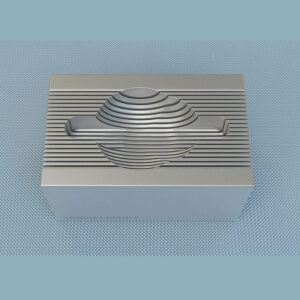Introduction
Welcome to the fascinating world of electrophysiology, where the mysteries of electrical activity in biological systems are unveiled. In this post, we will dive into the definition and core concepts of electrophysiology. By exploring the fundamental principles of this field, we aim to provide you with a solid understanding of the captivating world of electrophysiology.
Electrophysiology Definition
Electrophysiology is a branch of physiology that investigates the electrical properties and activity within biological systems. It focuses on the measurement, recording, and analysis of electrical signals generated by cells, tissues, and organs. By examining these electrical impulses, scientists gain insights into the mechanisms underlying various physiological processes, allowing for a deeper understanding of how living organisms function.
Procedure: Probing the Electrical Signals
Electrophysiological studies involve the implementation of specialized techniques to record and analyze electrical signals. These techniques can be invasive or non-invasive, depending on the specific research or diagnostic requirements. Invasive methods often utilize the placement of electrodes or catheters in specific regions of interest to directly measure electrical activity. Non-invasive methods employ external sensors or imaging technologies to capture electrical signals without direct contact. These procedures enable researchers to uncover valuable information about the electrical dynamics within biological systems.
Application of Electrophysiology
Electrophysiology in Brain Studies
In the realm of neuroscience, electrophysiology plays a vital role in unraveling the intricacies of the brain. Techniques such as electroencephalography (EEG) and magnetoencephalography (MEG) provide non-invasive ways to study brain activity and cognitive processes. By analyzing electrical patterns and oscillations in the brain, researchers can gain insights into memory, attention, perception, and the manifestations of neurological disorders.
Electrophysiology in Heart Studies
The electrical activity of the heart is of paramount importance in maintaining proper cardiac function. Electrophysiological techniques, such as electrocardiography (ECG), are essential for assessing the electrical signals of the heart. By analyzing these signals, clinicians can diagnose cardiac conditions, such as arrhythmias, and determine appropriate treatment strategies. Additionally, electrophysiology aids in guiding procedures like cardiac ablation to restore normal heart rhythm and improve patient outcomes.
Interpretation: Decoding Electrical Patterns The interpretation of electrophysiological data requires expertise and a deep understanding of the complex electrical dynamics within the body. In the context of electrophysiology, interpretation involves analyzing electrical patterns, waveforms, and abnormalities to gain insights into the functioning of biological systems. In the case of heart health, electrophysiological studies provide valuable diagnostic information about arrhythmias, helping clinicians make informed decisions regarding treatment options and patient care.
Relation to Heart Health:
Electrophysiology’s Relation to Heart Health
Advancing Cardiac Diagnostics The field of electrophysiology plays a crucial role in assessing and maintaining heart health. By studying the electrical activity of the heart, abnormalities can be detected, leading to timely interventions and appropriate treatment strategies. Understanding the intricate electrical dynamics of the heart is essential for diagnosing and managing various cardiac conditions, ultimately improving patient outcomes and quality of life.
Electrophysiology: Tools for Precise Measurements
Electrophysiology relies on specialized equipment to accurately measure and analyze electrical signals. Examples include EEG and ECG machines, patch-clamp setups, multielectrode arrays, and catheters with built-in electrodes. These state-of-the-art devices facilitate precise recordings, enhancing our ability to delve into the electrical events occurring within the body and expanding our understanding of electrophysiology.
Electrophysiology: Strengths and Limitations
Electrophysiology offers significant strengths in unraveling the electrical dynamics of biological systems. It provides direct insights into the functioning of cells, tissues, and organs, enabling researchers to identify abnormalities, understand physiological processes, and guide medical interventions. However, electrophysiological techniques also have limitations, including spatial and temporal resolution constraints, invasiveness, and challenges associated with interpreting complex data. Acknowledging these limitations helps researchers refine techniques and develop innovative approaches to overcome them.
Summary
Illuminating the World of Electrophysiology Electrophysiology provides a comprehensive understanding of the electrical activity within biological systems. Through its definition, procedure, applications in the brain and heart, interpretation, relation to heart health, and discussion of equipment, strengths, and limitations, we have explored the fundamental concepts of this captivating field. By studying electrical signals, researchers gain valuable insights into the intricacies of living organisms, paving the way for advancements in medical diagnostics, treatment strategies, and our overall understanding of physiological processes.
Conclusion
Electrophysiology stands as a powerful scientific discipline that unravels the secrets of electrical activity within biological systems. By exploring the intricacies of electrophysiology, researchers and clinicians gain profound insights into the functioning of the brain, heart, and other organs. As advancements in technology continue to enhance our ability to measure and interpret electrical signals, the field of electrophysiology holds tremendous potential for further discoveries, leading to improved diagnostics, treatments, and a deeper understanding of the electrical basis of life.












